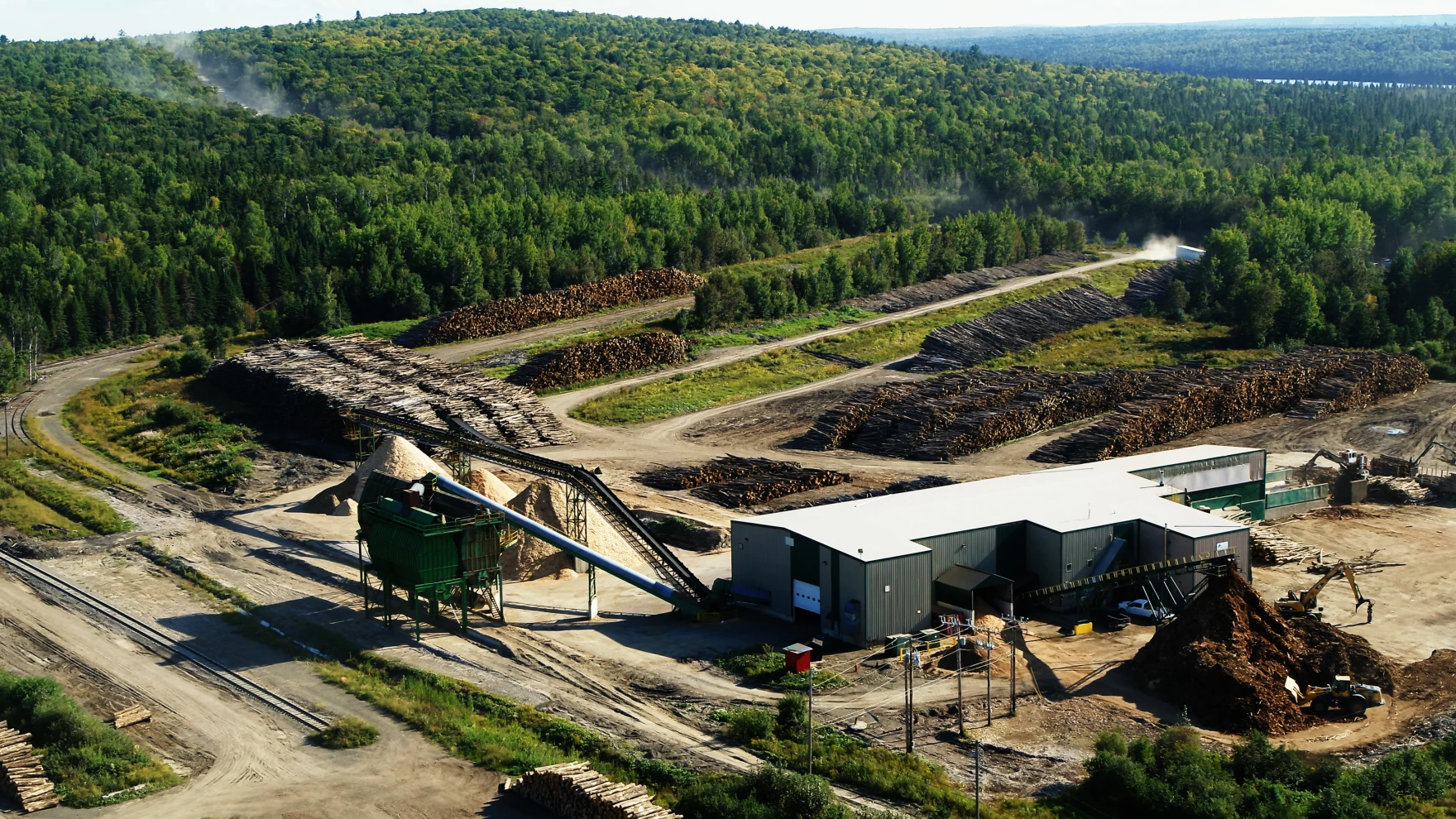Maine woods could store more carbon at current harvest with ‘climate smart’ forestry, study finds

With more than 800,000 acres, Seven Islands is one of the largest landowners in Maine. And for decades, the family-owned company has been independently certified in “sustainable forestry” a management strategy that considers biodiversity, water, soil and other factors before deciding which trees should be cut and which should be left to grow. (Kris Bridges / For Maine Public)
Maine forests already absorb about 70% of the state’s annual fossil fuel emissions. Now, a new study shows that Maine’s commercial forest landowners could increase annual carbon storage by at least 20% over the next 60 years while maintaining timber harvest levels. The findings are timely as the demand for carbon offset projects accelerates.
The forest modeling study across 7.6 million acres of mostly privately-owned commercial forest lands in northern Maine was conducted by researchers from the University of Maine, the New England Forestry Foundation and the U.S. Forest Service. Under current management practices, the forestlands are expected to remove 36 million metric tons of CO2 per year. But, if climate smart strategies such as increased planting, thinning and selective harvesting were widely adopted, the study suggests even more carbon could be stored without decreasing harvest levels.
“Unless you maintain harvest there’s the potential for there to really be no benefits to the atmosphere,” said Tom Walker, a natural resources economist and project coordinator.
“If a landowner in Maine cuts back on their harvest and stores more carbon, which makes a lot of sense, [and] if somebody else cuts that wood in Maine or in the U.S. or in the world, you know, there’s no net benefit to the atmosphere,” Walker said.
The study’s authors also say undertaking these improvements could be done at relatively low cost compared to other ways of mitigating climate change. The research comes as demand from companies looking to offset their carbon emissions through forest carbon removal projects increased four-fold between 2020 and 2021. Alec Giffen of the New England Forestry Foundation said there are other reasons to be encouraged by the findings.
“We can improve wildlife habitat. We can produce more wood. We can produce higher quality wood. We can increase the returns that landowners see from owning land,” Giffen said. “And I see this as potentially a game changer in terms of the kinds of things you can do in a financially beneficial way with forest management in Maine.”
The New England Forestry Foundation was recently awarded a $30 million grant from the U.S. Department of Agriculture to pilot forest management programs that pay forest landowners for carbon storage. Giffen said it’s essential for landowners to be compensated because it takes several decades for improved forest practices to pay off.
Where that funding comes from and how it’s distributed is something that has yet to be worked out.
The study was commissioned by the Forest Carbon for Commercial Landowners Initiative, a group of conservationists, scientists and commercial landowners who want to better understand the carbon storage potential of the Maine woods.
This story was originally published by Maine Public, a partner of the New England News Collaborative.
